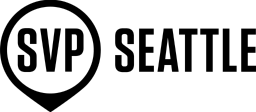Posted by seattle — January 12, 2016
David Bangs was all-in on the environment. His experience on SVP’s grant committee inspired more than a decade of giving and angel investing. Then in 2013, David joined the first cohort of SVP’s Northwest Conservation Philanthropy Fellows to deepen his impact. What he discovered next surprised him.
“I had no idea I was going to work on democracy reform when I went into it,” shares David. “But they made us come up with a theory of change and led us through all these exercises to pick our values. And I really think that’s what did it.”
The 3-month Conservation Fellowship takes philanthropists through an experiential curriculum resulting in a clear vision, theory of change (you can see David’s here), and action plan for their giving and engagement. Through that process, David realized the environmental outcomes he sought were inexorably linked to a healthy democracy.
“If this is a corrupt battle, then all of my other causes will lose,” explains David. “The reason this appeals to so many environmentalists is because they know that if politicians are doing whatever the richest donors want, environmental concerns are not going to win. We have to fix democracy first.”
Since completing the Conservation Fellowship two years ago, David has worked tirelessly for democracy reform – and last November, he got a taste of victory. Honest Elections Seattle Initiative 122 passed handily, limiting the influence of big money interests in city policy-making and giving ordinary people a stronger voice in local government.

Photos from the Honest Elections Seattle Facebook page.
David’s role – primarily behind the scenes as a funder and advocate – started with encouraging the Progress Alliance (a key philanthropic player in the campaign) to add democracy reform as a core value. Without that, the Progress Alliance might be “tempted to trounce democracy” in order to advance their issues like mitigating climate change and raising the minimum wage, explains David.
“We could have our billionaire donors against their billionaire donors. Or we could do something to democratize the way campaigns are funded. And then neither side would have those tools at their disposal.”
David served on the early design committee for Honest Elections Seattle and worked with fellow funders and advocates to ensure the initiative represented the will of the voters. He courted and connected other environmental leaders for the cause, including Alan Durning of Sightline Institute, who ended up writing the Honest Elections Seattle initiative along with a number of articles discussing how a broken democracy is blocking the quest for a sustainable region.
Despite all of this, many campaign volunteers would not know David was even involved. In his eyes, he is a catalyst – which made him a little hesitant to share this story.
“I’m worried that if you give me credit for something and the volunteers on the ground don’t even know who I am, they’ll think that I’m taking credit for their efforts. And that’s not what I intend to do,” explains David. “As philanthropists we’re trying to point things in a certain direction and help raise money and things like that. It’s important to draw the distinction between being catalytic and being the person out there in front of Trader Joe’s gathering signatures. Because that’s not me. I haven’t worked as hard as some of these people.”
There are many who “are going to say that it wouldn’t have happened without me,” continues David. “But it wouldn’t have happened without a lot of people.”
“Nobody makes any of these things happen by themselves. That’s one of the things that makes me so excited. The fact that doing something this hard requires multiple people making indispensable contributions.”
This is a constant theme in David’s work – collaborating for greater impact, which also requires him to own his strengths and weaknesses. “I’m personally more effective one-on-one,” says David. “I’m not as comfortable speaking in front of large crowds, which I think holds many people back. It’s this idea that if you start this movement, then you’ll have to be out in front of it. But you don’t have to be.” By the time a movement reaches that stage, the people who thrive in that role will emerge.

Working as part of a community is also what David appreciates most about his experience as a Conservation Fellow (photographed above with the 2013 cohort). “The fact that everyone’s encouraging you is really important,” explains David. “I think one of the reasons people don’t move forward is because they feel alone.”
“I think if I hadn’t gone through the fellowship – even if I did come up with democracy reform – I would have felt too alone to be brave enough to do anything about it.”
So what’s next for David? He is playing another pivotal role – this time for Initiative 735. David and fellow supporters organized and raised money for a robust signature gathering campaign – turning in over 335,000 signatures. “I worked my butt off,” says David. “But not as much as the lady who gathered 22,000 signatures all by herself!”
Popularly known as WAmend, I-735 will be on the November ballot and urges Washington State’s congressional delegation to propose a Constitutional amendment that will mitigate the effects of Citizen’s United.
It’s an uphill battle, but one worth fighting. “The things that make me proud to be an American are at risk,” explains David. Every victory generates momentum, and he hopes that Washington will set trends for the nation – as it did on issues like raising the minimum wage and marriage equality – becoming a key leader in democracy reform.
**
David Bangs is an SVP Partner and a Northwest Conservation Philanthropy Fellow. If you are interested in learning more about this annual fellowship, please email Janna Rolland.
